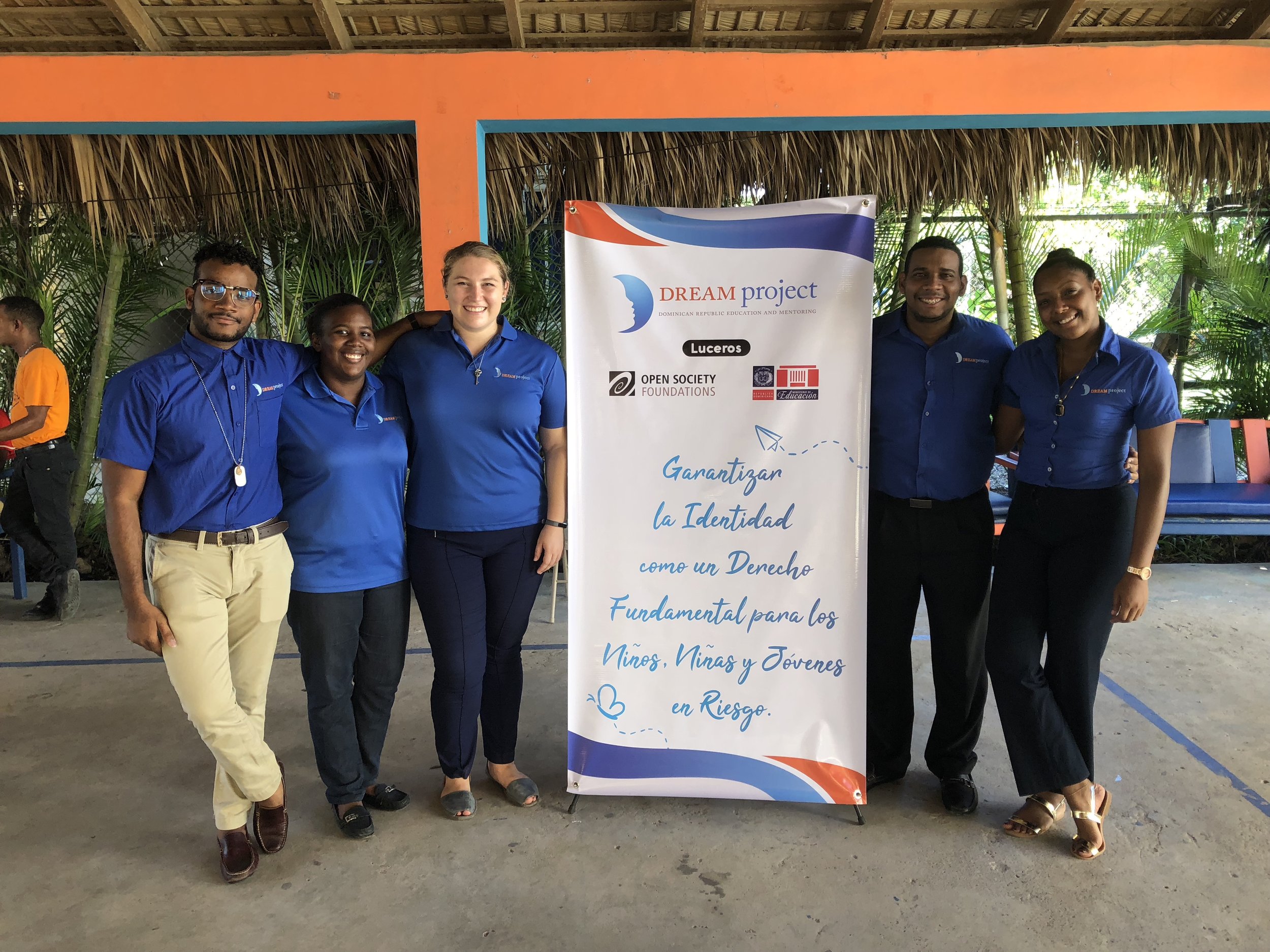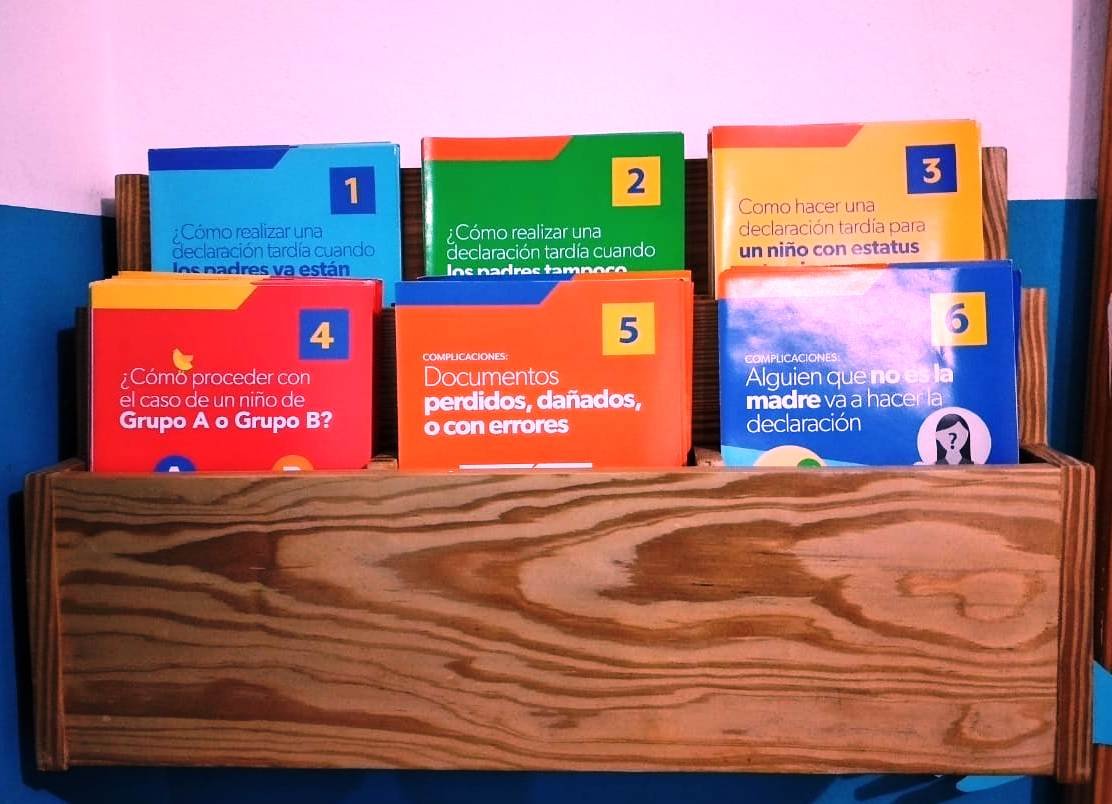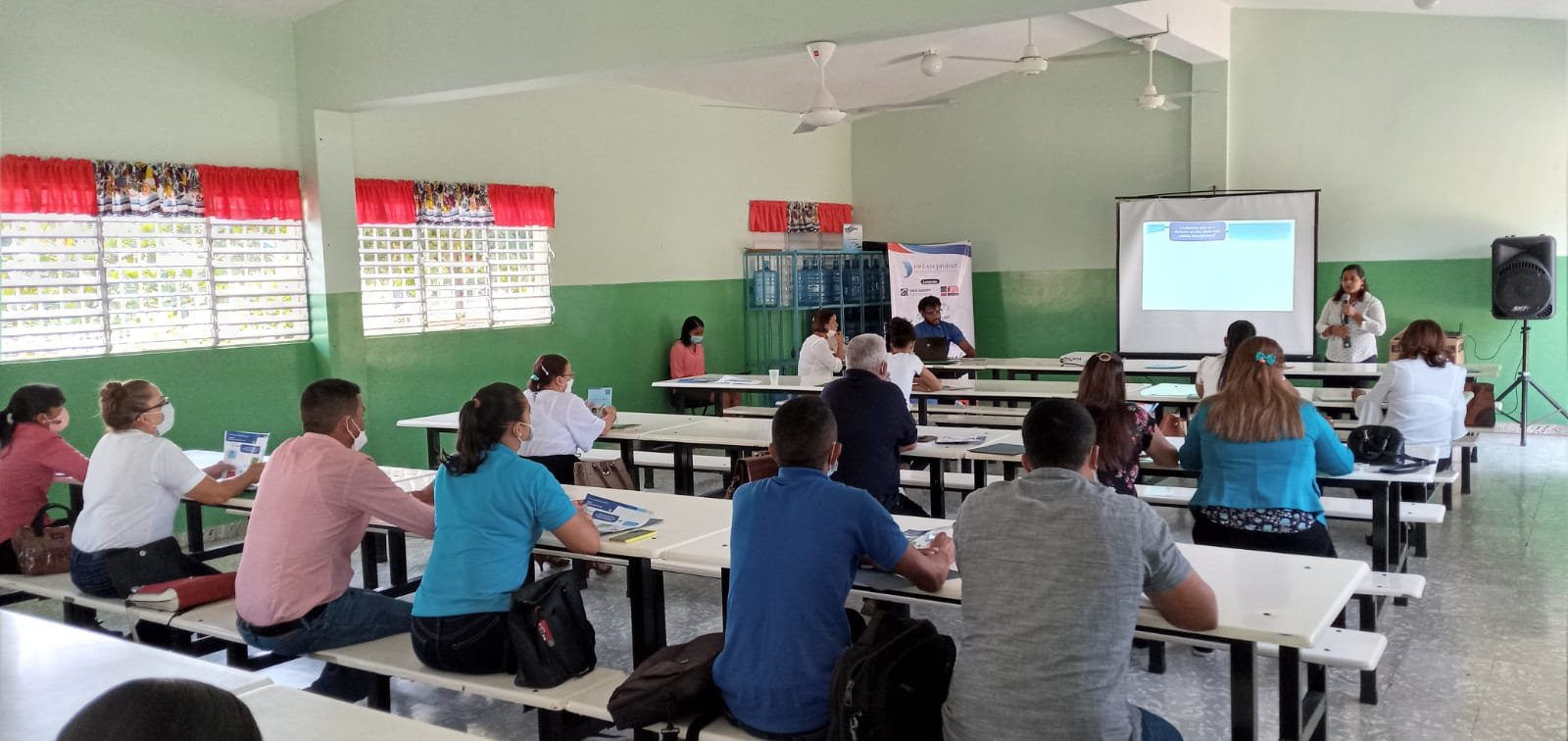Luceros Human Rights and Documentation Project Wins the Óscar Arnulfo Romero Ibero-American Prize for Human Rights Education
Cabarete, Puerto Plata, Dominican Republic - The DREAM Project’s Luceros Human Rights and Documentation Project has been awarded at the IV edition of the Óscar Arnulfo Romero Ibero-American Award for Human Rights Education by the SM Foundation and the Organization of Ibero-American States for Education, Science and Culture (OEI). The Óscar Arnulfo Romero Ibero-American National Prize For Human Rights Education seeks to recognize the work of educational institutions and civil society organizations that act in an exemplary manner in the defense and promotion of human rights through education. Luceros’ team attended the IV International Seminar on Human Rights Education in Chile, during which they received the prize.
DREAM’s Luceros Human Rights and Documentation Project was selected as the Dominican Republic national winner and the Ibero-American international winner of the IV edition of the Óscar Arnulfo Romero Ibero-American Award for Human Rights Education by the SM Foundation and the Organization of Ibero-American States for Education, Science and Culture (OEI).
The Luceros Human Rights and Documentation Project strives to promote the importance of respect for the human right to a name, identity, unobstructed access to quality free education and decent work, which it achieves through two main approaches:
Direct case management to facilitate the birth registration of at-risk children, adolescents and adults in the Dominican Republic to obtain their corresponding identity documents.
Trainings for schools, community organizations and government institutions who work with at-risk individuals and families to discuss and demonstrate the use and distribution of informational materials describing common cases of late declaration to create “Defenders of Late Declaration” who promote the importance of the right to have a name and an identity and the implementation of the delayed declaration process.
Access to birth registration and identity documentation is a vitally important human rights issue in the Dominican Republic. As stated in Article 7 of the United Nations Convention on the Rights of the Child, which the Dominican Republic signed in 1990 and ratified in 1991, “Every child should be registered at birth and has the right to a name, to a nationality and, as far as possible, to be cared for by their parents.” Furthermore, in the Dominican Republic, proof of age and identity is essential to receive access to basic services, including education, health care and social assistance, as well as protection against abuse and exploitation. The significant proportion of Dominicans lacking birth certificates and/or identity cards and the systematic denial of birth registration to persons of Haitian descent require immediate and sustained attention. Beginning in 2011, Luceros has been addressing the lack of birth registration and documentation of at-risk children and youth between the ages of zero and 16 and adults along the North Coast of the Dominican Republic. In 2017, the program’s reach and work was greatly expanded thanks to the support of Open Society Foundations.
Since 2017, Luceros has received a total of 1,066 cases referred to its Late Declaration Case Management Services, of which 892 are actively being worked on. Of those cases, 580 have been registered (358 fully resolved and 222 awaiting birth certificate). A total of 40 workshops have been carried out from October 2018 to June 2021 with 2,843 participants from 572 entities and institutions. More than 28,900 informational brochures developed by the Luceros team have been distributed to key stakeholders. Surveys implemented to assess the percentage of workshop participants who feel informed and confident in guiding a family through the late filing process showed an increase in knowledge of the protocol and procedure from 65% to 70% and in participants' confidence to guide families through the process from 73% to 90%.
Through community and institutional alliances, Luceros has been able to reach more people in need and contribute to the Dominican Republic’s fight to guarantee the right to a name and identify, along with other human rights, such as education. Given its presence in the region, Luceros has become a key point of contact for information on late documentation processes for people in Cabarete, the province of Puerto Plata and other nearby areas. The DREAM Project is incredibly grateful for the recognition of Luceros’ critically important work in the region and looks forward to the Ibero-American phase of the competition and the IV International Seminar on Human Rights Education.




